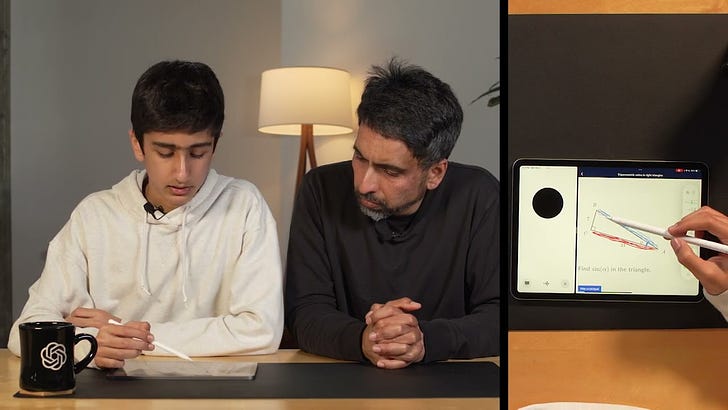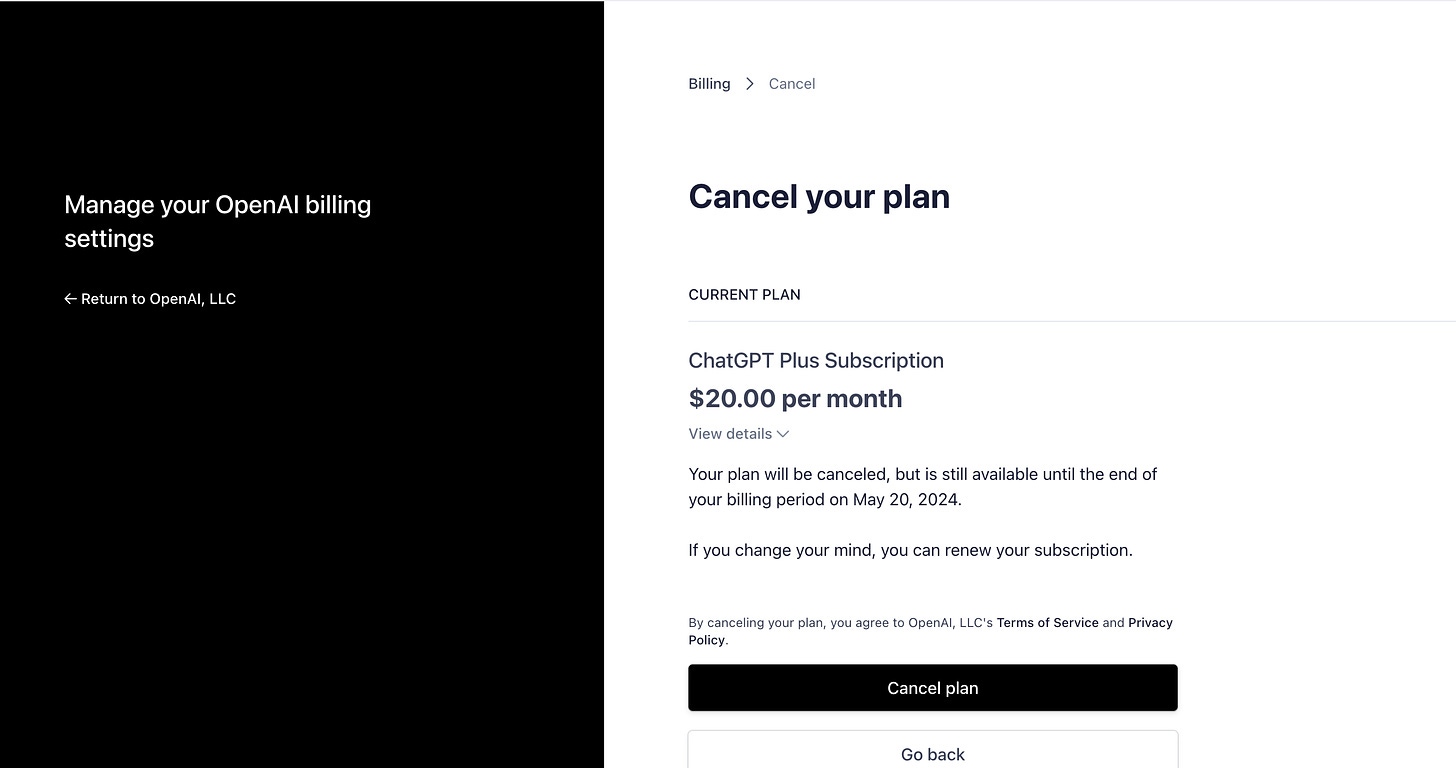Towards Truly Open AI Systems
Yesterday, OpenAI released their latest model, GPT-4o.1
GPT-4o is “a step towards much more natural human-computer interaction.” It can “reason across audio, vision, and text in real time.”
While the new model is an impressive technological feat that will provide real benefits for many — the announcement and surrounding fanfare left me feeling afraid.
The video below offers a glimpse into humanity’s future that is both inspiring and terrifying. With GPT-4o, any child with reliable internet access and a tablet might reasonably expect to get more effective, enjoyable, and affordable tutoring in basic mathematics from an AI system than they would from a human.
I don’t have a problem with this type of technology being created or being used. I think large language models can be net beneficial for society if used wisely.
But I’ve also studied enough history, followed current events closely enough, and read more than enough science fiction to know that we are treading in dangerous waters. Depending on centralized private corporations to provide these services while entrusting them with all of our most intimate data is a very bad idea.
So, I canceled my ChatGPT plus subscription and deleted my Open AI account.
I’ll only be using open source and privacy preserving systems like Hyperspace and Venice to interact with LLMs from now on. 23
I’m not sure exactly how I’m going to be navigating these times of intense technological disruption. I do know that increasingly, I’ll be consciously taking actions aimed at moving myself, and society, towards truly open AI systems.
Note: my thoughts on systems science and artificial intelligence from just under a year ago are relevant, if a bit outdated.
https://openai.com/index/hello-gpt-4o/
https://aios.network/
https://moneyandstate.com/blog/the-separation-of-mind-and-state





